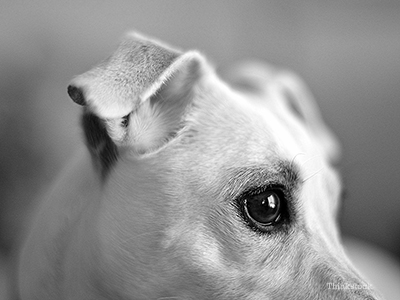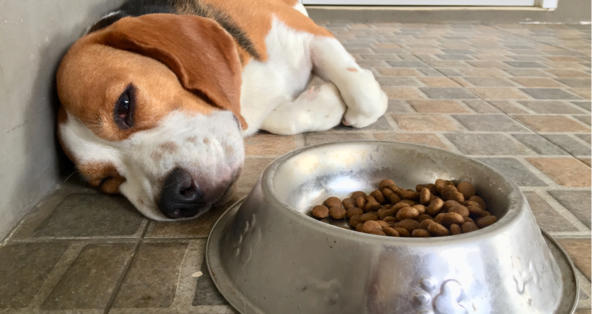It’s crucial to consult a veterinarian immediately if your dog is refusing to eat or drink, and shaking. These symptoms could indicate a serious health issue that requires prompt medical attention.
Proper nutrition and hydration are essential for your dog’s overall well-being, and a sudden refusal to eat or drink, accompanied by shaking, may signal an underlying health problem. It could be indicative of digestive issues, poisoning, infections, pain, or stress.
By seeking prompt veterinary care, you can identify the root cause of these symptoms and provide the necessary treatment for your dog’s recovery. Additionally, monitoring your dog’s behavior, environmental changes, and any potential sources of distress can aid in identifying potential triggers for the symptoms. Always prioritize your pet’s health and seek professional guidance if you notice any concerning changes in their behavior.
Possible Causes Of Loss Of Appetite And Shaking
When your dog refuses to eat or drink and is shaking, it can be concerning as a pet owner. Several factors could contribute to these symptoms, ranging from physical illnesses to stress or anxiety. It’s important to determine the underlying cause so that your furry friend can receive appropriate care and treatment. In this article, we will explore the possible causes of loss of appetite and shaking in dogs, including physical illness, stress or anxiety, and environmental factors.
Physical Illness
Physical illnesses can often manifest in dogs as a loss of appetite and shaking. These can be minor ailments or more serious conditions. Some common physical illnesses that may cause these symptoms include:
- Gastrointestinal issues such as stomach viruses, gastritis, or intestinal blockages. These conditions can cause discomfort and lead to a loss of appetite.
- Dental problems like tooth decay, gingivitis, or oral infections. Painful teeth or gums can make it difficult for dogs to eat normally.
- Viral or bacterial infections, such as parvovirus or leptospirosis, which can suppress appetite and cause shaking due to fever or weakness.
- Kidney or liver disease, where toxins build up in the dog’s body and affect their appetite and overall health.
- Hormonal imbalances, like hypothyroidism or Cushing’s disease, which can disrupt a dog’s metabolism and appetite.
Stress Or Anxiety
Stress or anxiety can also be factors that contribute to a dog’s loss of appetite and shaking. Dogs are sensitive creatures, and various situations or changes in their environment can trigger emotional distress. Some common stressors that may lead to these symptoms include:
- Moving to a new home or experiencing a change in their routine, which can cause anxiety and disrupt their normal eating patterns.
- Separation anxiety when dogs are left alone for extended periods, resulting in loss of appetite and restlessness.
- Loud noises, such as fireworks or thunderstorms, which can frighten dogs and cause them to feel anxious.
- Past traumatic experiences or abuse that can leave a lasting impact on a dog’s mental well-being.
Environmental Factors
In addition to physical illnesses and psychological factors, certain environmental factors can contribute to a dog’s loss of appetite and shaking. These may include:
- Extreme temperatures, both hot and cold, which can make dogs uncomfortable and affect their desire to eat and drink.
- Poisonous plants or toxic substances, which, if ingested, can lead to illness and loss of appetite.
- Contaminated water sources that can cause gastrointestinal upset and a decrease in appetite.
- Poor-quality or unfamiliar food, which dogs may be hesitant to eat, resulting in a loss of appetite.
Understanding the potential causes of your dog’s loss of appetite and shaking can help you identify the best course of action. If your dog’s symptoms persist or worsen, it is essential to consult a veterinarian for a proper diagnosis and treatment plan. Remember, the sooner you address the issue, the quicker your beloved furry companion can get back to their healthy, happy self.
Symptoms To Look For
Lack Of Interest In Food And Water
Dogs not eating or drinking can be a sign of various health issues. When a dog refuses food or water for an extended period, it may indicate an underlying health problem. Lack of interest in food and water can be caused by issues such as dental problems, gastrointestinal disorders, or even emotional distress. If your dog is exhibiting a loss of appetite or a decrease in water intake, it’s crucial to monitor them closely and consider seeking veterinary care.
Shivering Or Trembling
Shivering or trembling in dogs can signify pain, fear, anxiety, or illness. When a dog is shaking or trembling without any obvious cause (such as being cold or scared), it’s essential to investigate the underlying cause. Shivering could be a symptom of various conditions, including fever, pain, poisoning, or neurological issues. Observing your dog’s behavior and any additional symptoms is crucial for determining the root cause of their distress.
When To Seek Veterinary Help
Your dog’s refusal to eat or drink and shaking can be a concerning sign of underlying health issues. While certain mild symptoms may resolve on their own, it’s vital to monitor your pet’s condition closely and know when it’s time to seek professional veterinary help. Being aware of the signs that indicate the need for immediate medical attention can be crucial in ensuring your dog’s well-being.
Persistent Symptoms
If your dog continues to show a lack of appetite, refusal to drink water, and persistent shaking for more than 24-48 hours, it could be a sign of a deeper health issue. Additionally, if there are other concerning symptoms such as lethargy, vomiting, or diarrhea accompanying these behaviors, it’s essential to consult a veterinarian promptly.
Severe Symptoms
In cases where your dog’s condition deteriorates rapidly, and they exhibit severe symptoms such as intense tremors, collapse, or seizures, it’s critical to seek urgent veterinary assistance. These signs may indicate a severe medical emergency requiring immediate attention to ensure the health and safety of your beloved pet.

Credit: www.alphapaw.com
Home Remedies And Care
If your dog is refusing to eat or drink and shaking, it could be a sign of various underlying issues. However, before seeking professional assistance, there are some home remedies and care you can try to help improve your dog’s condition. These remedies focus on offering tasty and nutritious food and providing a calm environment for your furry friend.
Offering Tasty And Nutritious Food
Dogs can be picky eaters, especially when they are not feeling well. To entice your dog to eat, try offering tasty and nutritious food options. Below are some suggestions to consider:
- Choose high-quality dog food with real meat as the primary ingredient. This ensures your dog receives essential nutrients.
- Try adding warm water or low-sodium chicken broth to your dog’s dry food to enhance the flavor and make it more appealing.
- Consider adding a small amount of lean, cooked meat (such as boiled chicken or turkey) to their regular food.
- Offer small, frequent meals throughout the day instead of a large meal all at once. This may be easier for your dog to digest.
- Consult with your vet about incorporating safe and healthy treats as occasional rewards for your dog.
Providing A Calm Environment
A calm and stress-free environment is crucial for your dog’s well-being and appetite. Here are a few ways to create a peaceful atmosphere for your furry companion:
- Ensure your dog has a quiet and comfortable space to rest and sleep. Provide a cozy bed or blanket.
- Avoid loud noises and excessive activity around your dog, as this can contribute to stress and anxiety.
- Keep their water bowl and food dish in a clean and familiar location, away from any commotion. Dogs prefer consistency and routine.
- Engage in gentle activities and spend quality time with your dog. This can help reduce their anxiety and improve their appetite.
- If your dog’s loss of appetite persists or is accompanied by other concerning symptoms, it’s important to consult with a veterinarian for a proper diagnosis and treatment.
Prevention And Avoidance
Prevention and Avoidance are key when it comes to ensuring the health and well-being of our furry friends. By implementing certain measures, we can help reduce the likelihood of our dogs experiencing loss of appetite, refusing to drink, and shaking. Regular vet check-ups, as well as maintaining a consistent routine, play a vital role in keeping our dogs healthy and happy.
Regular Vet Check-ups
Regular vet check-ups are crucial for identifying and addressing any underlying health issues that may be causing your dog’s lack of appetite, refusal to drink, and shaking. These check-ups allow the veterinarian to perform a thorough examination, conduct necessary tests, and make an accurate diagnosis of the problem. By catching any potential issues early on, treatment can begin promptly, improving the chances of a full recovery.
Maintaining A Consistent Routine
A consistent routine provides stability and a sense of security for our furry companions. Dogs thrive on routine, and any major disruptions can impact their appetite and overall well-being. Stick to a regular feeding schedule, ensuring meals are provided at the same time each day. Regular exercise and playtime are also important components of a consistent routine. Adequate exercise not only promotes a healthy appetite but also helps reduce stress and anxiety, which can manifest as shaking.
Additionally, factors like environmental changes, such as moving to a new house, introducing a new pet or family member, or even changes in their daily schedule, can cause distress in dogs, leading to a loss of appetite and shaking. By maintaining a stable and predictable environment, we can minimize these stressors and help our dogs stay happy and healthy.

Credit: www.pethealthnetwork.com

Credit: pethelpful.com
Frequently Asked Questions For My Dog Won’t Eat Or Drink And Is Shaking
Why Is My Dog Not Eating Or Drinking And Shaking?
There could be several reasons why your dog is not eating or drinking and shaking. It could be due to an upset stomach, illness, anxiety, or even pain. It’s important to monitor your dog’s behavior and consult with a veterinarian for a proper diagnosis and treatment.
What Should I Do If My Dog Won’t Eat Or Drink And Is Shaking?
If your dog is not eating or drinking and is shaking, it’s important to take action. First, ensure that there is no immediate danger or threat to your dog’s safety. Then, try offering your dog small, bland meals and fresh water.
If the symptoms persist, it’s best to consult with a veterinarian to rule out any underlying health issues.
When Should I Be Concerned If My Dog Won’t Eat Or Drink And Is Shaking?
If your dog is refusing to eat or drink and is shaking, it’s advisable to be concerned if the symptoms persist for more than 24 hours. Additionally, if your dog shows other signs of illness such as vomiting, diarrhea, or lethargy, it’s important to seek veterinary attention as soon as possible.
Trust your instincts and prioritize your dog’s well-being.
Conclusion
If you notice that your dog is refusing to eat or drink, accompanied by shaking, it is essential to take immediate action. This could be a sign of an underlying health issue, anxiety, or discomfort. By observing your dog’s behavior closely and consulting a veterinarian, you can identify and address the root cause and ensure your furry friend receives the necessary care and treatment.
Remember, your dog’s well-being should always be a priority.



